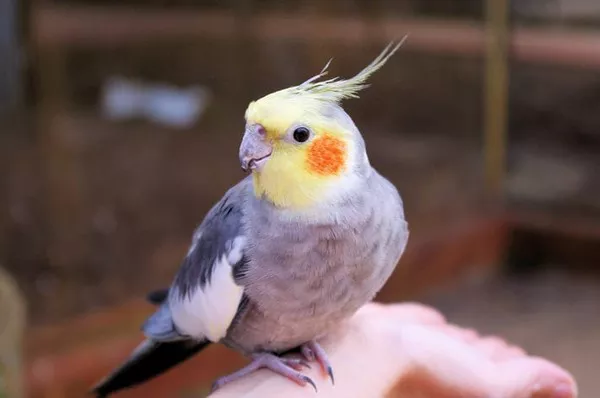Breed Overview:
Labradoodles, a cross between a Labrador Retriever and a Poodle, have surged in popularity over the past few decades. Their friendly demeanor, intelligence, and hypoallergenic coat make them a favorite among families and individuals alike. Originally bred in Australia in the late 20th century, Labradoodles quickly gained recognition for their versatility as guide dogs, therapy dogs, and beloved companions.
In terms of health, Labradoodles generally enjoy robust overall well-being. However, like all breeds, they may be prone to certain health issues, including digestive problems. Understanding the nuances of Labradoodle health, particularly concerning digestive health, is crucial for providing optimal care to these beloved pets.
Digestive Health in Labradoodles:
Labradoodles are not inherently predisposed to weak stomachs, but they can be prone to digestive issues, much like any other dog breed. These issues can manifest as symptoms such as diarrhea, vomiting, gas, bloating, or frequent bouts of discomfort. While not all Labradoodles will experience digestive sensitivity, some individuals may be more susceptible due to genetic factors or environmental triggers.
Common Causes of Digestive Sensitivity
Several factors can contribute to digestive issues in Labradoodles:
Dietary Intolerance: Labradoodles may have sensitivities or allergies to certain ingredients in their food, such as grains, dairy, or specific proteins.
Stress: Like humans, dogs can experience stress, which may manifest in digestive upset. Changes in routine, environment, or the addition of a new family member (human or animal) can all contribute to stress-related digestive issues.
Poor Eating Habits: Rapid eating, scavenging, or ingesting non-food items can lead to digestive disturbances.
Infections or Parasites: Bacterial infections, viral illnesses, or parasitic infestations can disrupt digestive health.
Underlying Health Conditions: Conditions such as inflammatory bowel disease (IBD), pancreatitis, or gastroenteritis can affect the digestive system.
Preventative Measures:
While not all digestive issues can be prevented, there are steps that Labradoodle owners can take to promote digestive wellness:
High-Quality Diet: Feed your Labradoodle a balanced, high-quality diet formulated for their specific nutritional needs. Consider consulting with a veterinarian to determine the best diet for your dog.
Slow Feeding: Use slow-feed bowls or puzzle feeders to prevent rapid eating and reduce the risk of bloating or gastrointestinal discomfort.
Avoid Table Scraps: Limit or avoid feeding table scraps, as they can upset your Labradoodle’s stomach and contribute to weight gain.
Regular Exercise: Provide regular exercise to promote overall health and help regulate digestion.
Stress Management: Minimize stressors in your Labradoodle’s environment and provide plenty of mental and physical stimulation.
Routine Veterinary Care: Schedule regular check-ups with your veterinarian to monitor your Labradoodle’s health and address any concerns promptly.
Treatment Options:
If your Labradoodle experiences digestive issues, several treatment options may be recommended:
Dietary Changes: Switching to a hypoallergenic or easily digestible diet may alleviate symptoms associated with dietary intolerance.
Medication: Your veterinarian may prescribe medications such as antidiarrheals, probiotics, or anti-inflammatory drugs to manage symptoms and address underlying conditions.
Hydration: Ensure your Labradoodle stays hydrated, especially if vomiting or diarrhea is present.
Rest and Monitoring: Allow your Labradoodle plenty of rest and monitor their condition closely. Contact your veterinarian if symptoms persist or worsen.
When to See a Vet:
While occasional digestive upset is not uncommon, certain signs warrant prompt veterinary attention:
Persistent Symptoms: If your Labradoodle experiences frequent or severe digestive issues, such as vomiting or diarrhea lasting more than 24 hours, seek veterinary care.
Dehydration: Signs of dehydration include excessive thirst, dry gums, sunken eyes, and lethargy.
Blood in Stool: The presence of blood in your Labradoodle’s stool may indicate a serious underlying condition and requires immediate veterinary attention.
Abdominal Pain: Signs of abdominal pain include restlessness, pacing, whining, or reluctance to move.
Owner Testimonials:
Many Labradoodle owners have shared their experiences dealing with digestive issues in their beloved pets. While each dog is unique, common themes emerge:
Dietary Adjustments: Several owners have found success in managing digestive issues by switching to a high-quality, easily digestible diet.
Consulting with Veterinarians: Seeking guidance from veterinarians and following their recommendations has been instrumental in addressing and managing digestive problems.
Patience and Persistence: Owners emphasize the importance of patience and persistence when dealing with digestive issues, as finding the right treatment approach may take time.
FAQ Section:
Are Labradoodles Prone to Digestive Issues?
While not all Labradoodles will experience digestive sensitivity, some individuals may be more prone due to genetic factors or environmental triggers.
What Should I Feed My Labradoodle to Prevent Digestive Issues?
Feed your Labradoodle a balanced, high-quality diet formulated for their specific nutritional needs. Consider consulting with a veterinarian to determine the best diet for your dog.
How Can I Tell if My Labradoodle Has a Sensitive Stomach?
Symptoms of a sensitive stomach in Labradoodles may include diarrhea, vomiting, gas, bloating, or frequent bouts of discomfort.
When Should I See a Vet for My Labradoodle’s Digestive Issues?
If your Labradoodle experiences persistent symptoms such as vomiting or diarrhea lasting more than 24 hours, signs of dehydration, blood in the stool, or abdominal pain, seek veterinary attention promptly.
In conclusion, while Labradoodles are generally healthy and resilient dogs, they can be prone to digestive issues like any other breed. By understanding the potential causes, implementing preventative measures, and seeking prompt veterinary care when needed, Labradoodle owners can help ensure their furry companions enjoy optimal digestive health and overall well-being.
Related Topics:

























